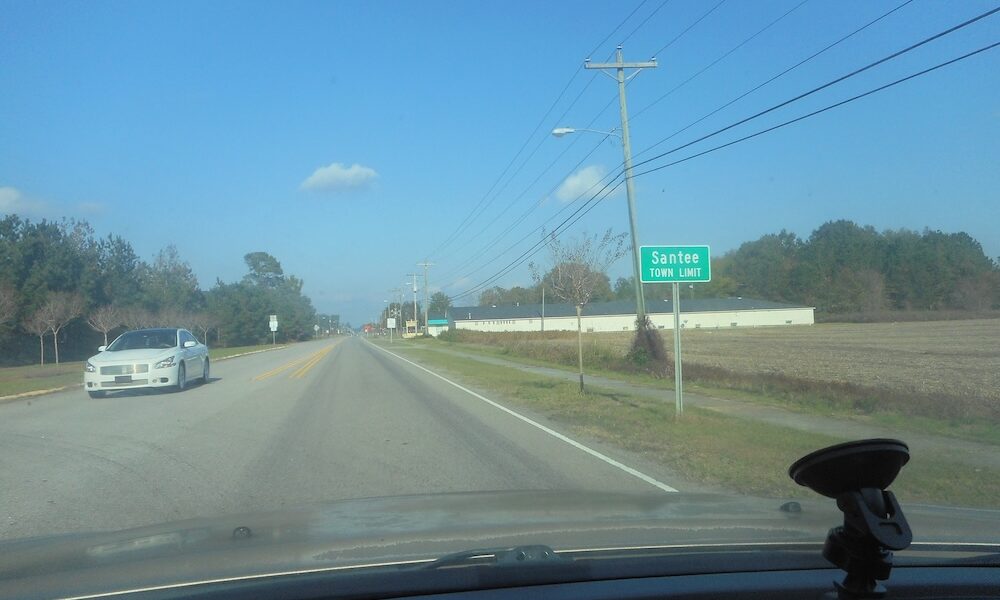Wallace Cheves, founder and president of Santee Development Corporation, owns some land in Santee, Orangeburg County, South Carolina. Cheves purchased the land with the expectation that in time, he could build a casino resort. Cheves envisioned a resort to entertain travelers on I-95. The highway is a thoroughfare for east coast travel from Maine to Florida that carries nearly 100,000 vehicles at any given time. Cheves may have gotten the idea from Disney. Disney purchased land in South Carolina in 2006 and sparked rumors of a Disney Park among the palmettos.
Regardless of its origin, Cheves’s first plan was to include his then-partner, the Catawba Indian Nation. Cheves and the Catawba had been dance partners in the past, collaborating on the Kings Mountain Casino in Kings Mountain, North Carolina. The Catawba Nation is a federally recognized tribe in South Carolina. However, South Carolina has long resisted the tribe’s efforts to build a casino on its reservation in Rock Hill. The tribe also owned land in North Carolina and managed to put that land into trust for gaming, possibly with the help of Cheves.
The agreement between Cheves and the Catawba did not meet the National Indian Gaming Commission standards and Cheves was forced out. The Kings Mountain casino is less than three hours from the Santee site and the tribe is not pleased with Cheves’s plan. Cheves may also have a secondary plan with the Lumbee Tribe. The Lumbee are from North Carolina, but they have land in South Carolina too. If the tribe receives federal recognition, it could be eligible for a casino in South Carolina.
A bill currently in the South Carolina House would create a gaming commission and recognize the Lumbee as a legal gaming entity. The bill is titled “I-95 Economic and Education Stimulus Act.” The I-95 corridor is also called the Corridor of Shame, based on a 2005 documentary that depicted the poverty of rural education in South Carolina; the host said, “I felt I had stumbled into another century.” Since then, finding ways to improve conditions in the corridor has been a frequent topic of discussion. Cheves is promising to do just that with $100 million a year in taxes, a billion-dollar investment, and thousands of jobs.
The movement to bring a casino to South Carolina has met with a great deal of resistance. Political, including the government, educational, and religious leaders have not been shy in characterizing gaming as harmful and not of the culture of South Carolina. However, a recent poll found that 63 percent of voters favor the idea. Still, getting legislative approval could take time.
Cheves is okay with that. He says it took 13 years to get to ground breaking for the Kings Mountain casino. He says he has patience and is willing to begin the project as soon as he has the necessary permits. Would he really invest up to $1 billion without a casino license? That remains to be seen.
In the current political/economic environment, not just in South Carolina, but everywhere, plenty of balls of uncertainty are in the air. No one could today develop an accurate financial plan for a project of that size. It is impossible to predict the interest rate on the capital necessary for construction. It is equally impossible to predict the cost of materials and labor. Finally, it is impossible to predict the state of the economy and consumer spending in 3, 5, or 10 years.
An axiom in real estate states that the most important factors in buying real estate are location, location, and location. That may be true, but there are times when it is timing, timing, and timing. In Sinclair Lewis’s 1934 book, Work of Art, the central character plans for many years for the perfect resort. Eventually, he’s able to build his dream property, the Black Thread Inn. It opens in October 1929. In that year, nothing was the same as it was during the early days of his dream — not the economy, travel, the length of vacations, or the profile of travelers.
If that sounds like an archaic example, think of Revel in Atlantic City. Revel, like the Black Thread Inn, was planned years before world-changing events. In Revel’s case, by the time it opened, the Great Recession had begun, and Pennsylvania and New York had casinos. And just as important, the tastes of high rollers had changed. Revel cost $2.4 billion; it opened in 2012 and closed in 2014. It has sold several times, finally to AC Ocean Walk for $200 million; Ocean Casino reported $24 million in gross operating profit in 2024, down 6.4 percent. A long way from market-leader Borgata, but also a long way from bankruptcy court. Had Revel opened in 2004, it might have been a success, just as a Black Thread Inn in 1908 might have succeeded. It is all in the timing.
And timing is the issue in 2025. Wallace Cheves’s plan might have been a good plan for 2019 before the pandemic. Or in 2009 in the early days of the Corridor of Shame and Disney South Carolina rumors. But if it is a good plan for 2029 is another question. The same question might be posed for new casinos in Chicago or New York City.



